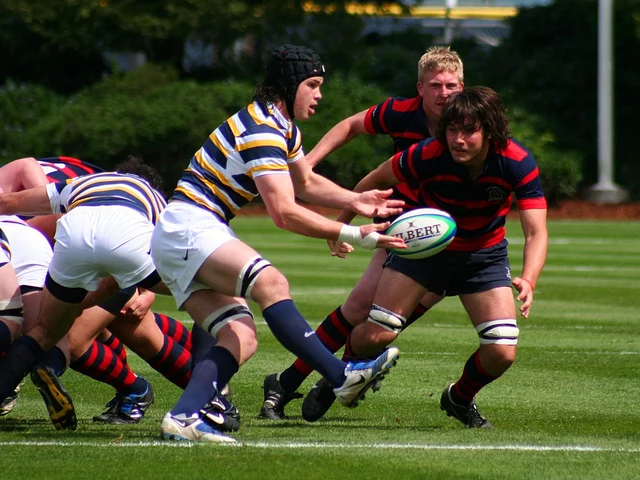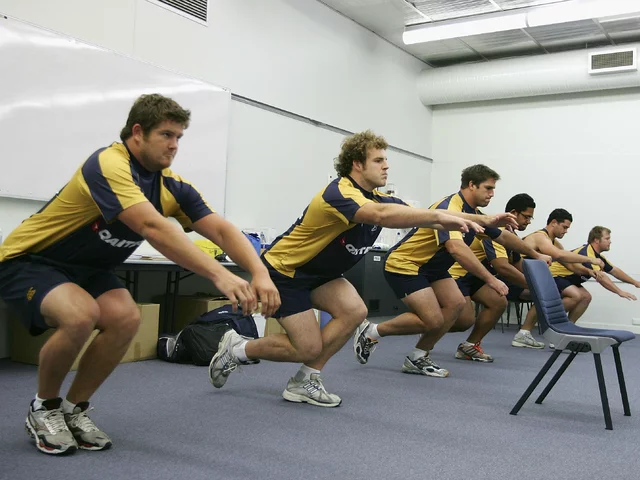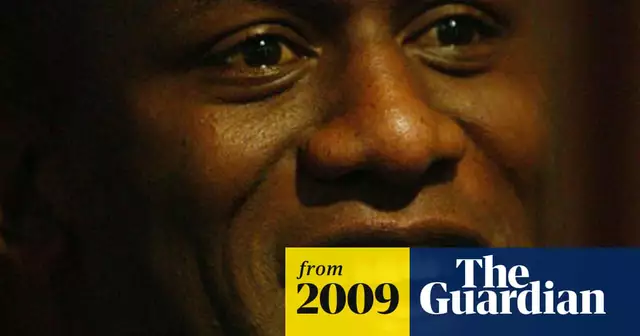Is World Rugby undergoing a power shift?
As World Rugby continues to grow in popularity, the sport has seen an influx of new market entrants. These new entrants have brought with them fresh ideas, new financial resources, and the potential to create a power shift in the game. But what impact are these new market entrants having on World Rugby?
Firstly, the influx of new market entrants has sparked a wave of investment in the sport. These new entrants have brought with them a wealth of financial resources, allowing them to invest in new technology, better playing facilities, and more competitive salaries for players. This investment has helped to create a more competitive playing environment, with teams from different nations now able to compete on a level playing field.
Furthermore, the new market entrants have helped to create a more globalized game. The advent of international tournaments such as the Rugby World Cup has enabled teams from around the world to compete against one another, further enhancing the level of competition in the sport. This has also opened up new opportunities for teams to gain greater exposure, as well as providing more lucrative sponsorship deals.
Finally, the new market entrants have helped to create a more professionalized game. Teams are now able to hire specialized coaches, scouts, and medical staff, enabling them to compete at the highest level. This has also helped to make the game more attractive to potential sponsors, as teams can now offer a higher level of professionalism.
Overall, it is clear that the influx of new market entrants into World Rugby has had a major impact on the sport. The increased investment, globalized nature, and professionalized atmosphere have all helped to create a more competitive, exciting, and lucrative game. However, it remains to be seen whether these changes will be enough to create a power shift in the sport.
The world of rugby is undergoing a power shift, as new rules and regulations continue to take effect. As a result, the sport is becoming more competitive and unpredictable, making it harder for any one team to dominate the game. This power shift has had a significant impact on how teams are structured and the strategies they use to stay at the top of their game.
One of the most significant changes in the sport is the introduction of the 'Power Play' rule. This rule allows teams to gain an extra point if they score a try in the last five minutes of a match. This has allowed teams to stage comebacks and be more competitive, even when they are behind in the score. It has also made it more difficult for teams to rely on their defense to win games, as teams can score more quickly.
Another rule change that has had an effect on the power dynamics of world rugby is the introduction of the 'captain's challenge'. This rule allows the captain of a team to challenge a referee's decision. This has given teams more control over the outcome of games, as teams can challenge decisions that would have previously gone unchallenged. This has increased the importance of a captain's leadership and tactical decisions, giving them more influence over the outcome of a match.
Finally, the introduction of the 'TMO' (television match official) has had an impact on the power dynamics of world rugby. This rule allows a referee to refer decisions to a television match official, who can review footage and make a decision on whether a try should be awarded or not. This has given referees more power to make the right decisions, and has made it more difficult for teams to take advantage of the referee's decisions.
Overall, the power dynamics of world rugby are changing, as new rules and regulations continue to take effect. These changes have had a significant impact on how teams are structured and the strategies they use to stay at the top of their game. It will be interesting to see how teams adapt to these changes and how they will affect the future of the sport.
The global rugby power shift has been a hot topic of discussion in recent years, with the emergence of new nations challenging the status quo. This has been especially true in the international arena, where teams from traditionally less-developed countries have taken on some of the world’s most established teams. From the Americas to the Pacific, these emerging nations are making their presence felt in the global rugby landscape.
The Pacific Islands, for instance, have been a key part of the power shift. Fiji, Samoa, and Tonga have long been a force to be reckoned with in the international arena, but their rise to the top of the rugby world has been fueled by their success in the regional competitions. The Pacific Nations Cup, for example, has seen teams from these nations competing for the title, with Fiji, Samoa, and Tonga all taking home a title in the last decade. Furthermore, the results of the Pacific Nations Cup have translated into success in the World Rugby Sevens Series, with Fiji winning the championship in 2016 and 2017.
The Americas have also seen a power shift in recent years. Argentina, who were once considered a minnow in the rugby world, have become a major force in the sport. The Pumas have become a regular fixture at the Rugby World Cup, and they have even earned victories over traditional powers such as England and Australia. In addition, the Americas Rugby Championship has seen teams from the Americas competing for the title, with Argentina emerging as the champion in 2018.
Furthermore, emerging nations in Europe have also been making their mark in the global rugby power shift. Georgia, for instance, have become a major force in the Six Nations, earning victories over traditional powers such as Ireland and Scotland. In addition, the Rugby Europe Championship has seen teams from across the continent competing for the title, with Georgia emerging as the champion in 2019.
It is clear that the global rugby power shift is in full swing, and emerging nations are leading the way. With success in regional and international competitions, these countries are proving that traditional powers can no longer rest on their laurels. As more nations continue to make their presence felt, it is likely that the power shift in world rugby will continue to grow in the coming years.








